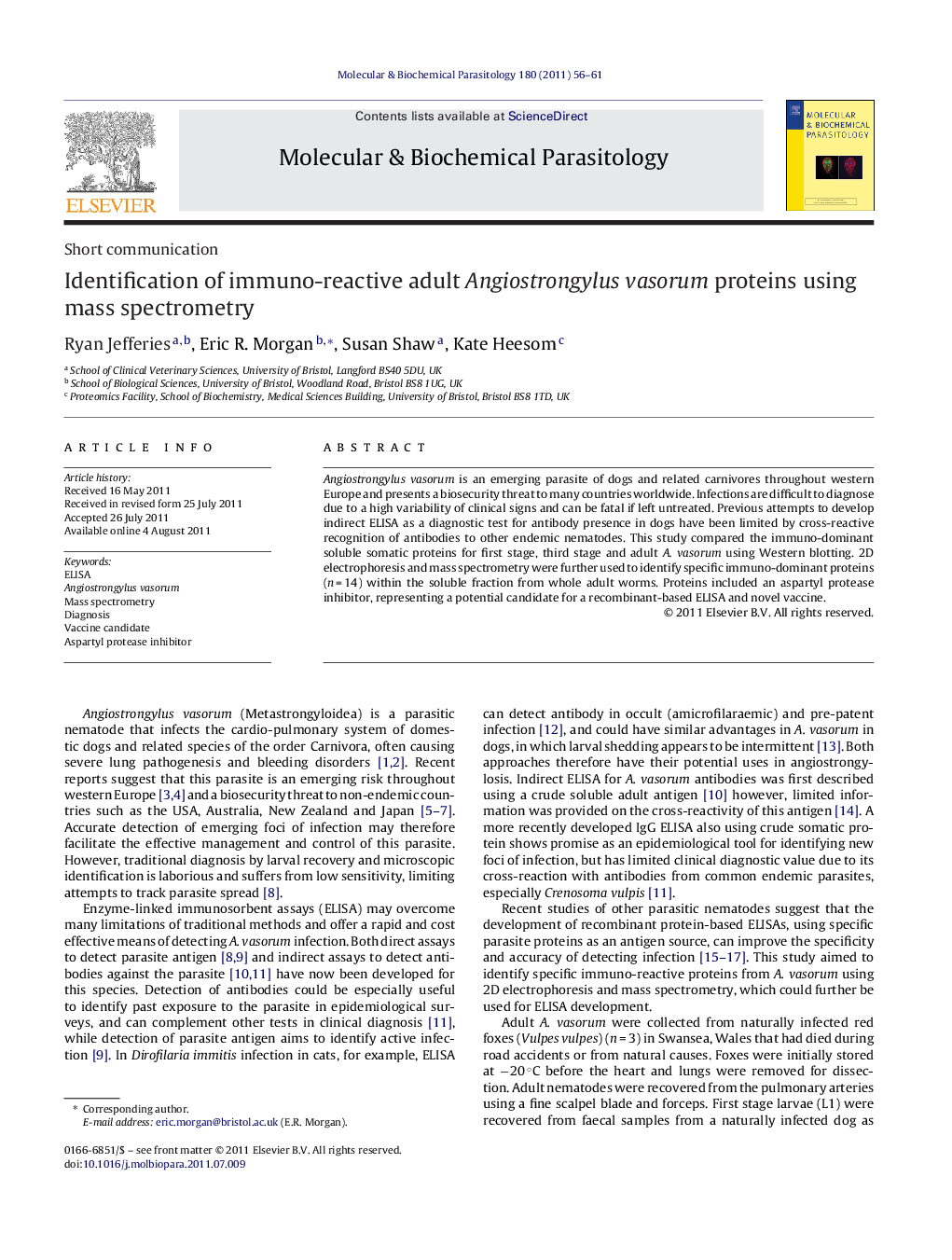| Article ID | Journal | Published Year | Pages | File Type |
|---|---|---|---|---|
| 5915645 | Molecular and Biochemical Parasitology | 2011 | 6 Pages |
Angiostrongylus vasorum is an emerging parasite of dogs and related carnivores throughout western Europe and presents a biosecurity threat to many countries worldwide. Infections are difficult to diagnose due to a high variability of clinical signs and can be fatal if left untreated. Previous attempts to develop indirect ELISA as a diagnostic test for antibody presence in dogs have been limited by cross-reactive recognition of antibodies to other endemic nematodes. This study compared the immuno-dominant soluble somatic proteins for first stage, third stage and adult A. vasorum using Western blotting. 2D electrophoresis and mass spectrometry were further used to identify specific immuno-dominant proteins (n = 14) within the soluble fraction from whole adult worms. Proteins included an aspartyl protease inhibitor, representing a potential candidate for a recombinant-based ELISA and novel vaccine.
Graphical abstractDownload high-res image (165KB)Download full-size imageHighlights⺠Soluble somatic proteins were extracted from first and third stage larvae and adult worms. ⺠Immunodominant proteins were identified by Western blot. ⺠14 immunodominant proteins from adult worms were characterised by 2D electrophoresis and mass spectrometry. ⺠One of these proteins included an aspartyl protease inhibitor, which might have value as a vaccine candidate. ⺠The immunodominant proteins could be used to develop more specific diagnostic tests for this emerging canine parasite.
